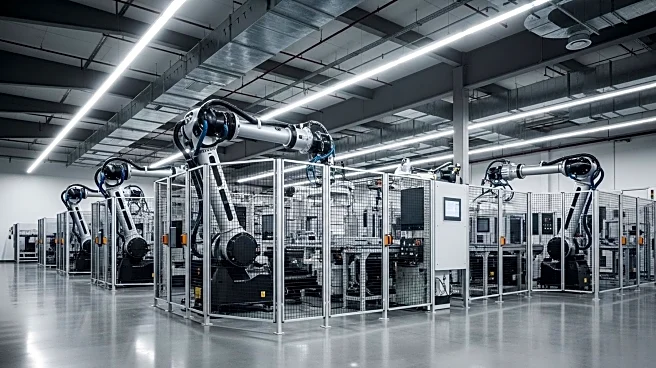What is the story about?
What's Happening?
Diageo is undertaking a significant overhaul of its North American supply chain, including the closure of its Amherstburg, Ontario bottling facility by February 2026. Operations will be shifted to Valleyfield, Quebec, and other U.S.-proximate sites to reduce transportation costs and improve responsiveness to consumer demand. This move is part of Diageo's 'Accelerate' program aimed at enhancing operational resilience and addressing the $200 million annual impact from U.S. tariffs on UK and European imports. The restructuring has led to a contraction in organic operating margins due to facility closures and workforce adjustments, but Diageo projects a reversal in 2026 as savings are reinvested into premium brands like Don Julio and Crown Royal.
Why It's Important?
Diageo's strategic shift is crucial for maintaining competitiveness in the spirits market, especially as it pivots towards high-margin products to offset inflationary pressures. The company's focus on innovation, including the use of drones for agave irrigation and investments in hydrogen fuel cell trucks, aligns with global ESG trends and positions Diageo to meet consumer preferences for eco-conscious brands. However, the strategy has raised concerns among investors, reflected in a 20% drop in share prices since the announcement. The success of this strategy will depend on Diageo's ability to manage transition costs without compromising brand equity or operational continuity.
What's Next?
Diageo aims to achieve a $625 million cost-cutting target over three years, focusing on premiumization and sustainability. The company will need to ensure that structural changes lead to margin expansion and consistent cash flow generation. The effectiveness of these changes will be closely monitored by shareholders, who are concerned about execution risks and potential disruptions in product availability.
Beyond the Headlines
Diageo's strategy highlights the broader industry trend towards sustainability and innovation in supply chain management. The company's initiatives not only aim to reduce carbon emissions but also reflect a shift towards meeting evolving consumer demands for environmentally friendly products. This approach could set a precedent for other companies in the spirits industry, emphasizing the importance of balancing cost efficiency with sustainable practices.
















